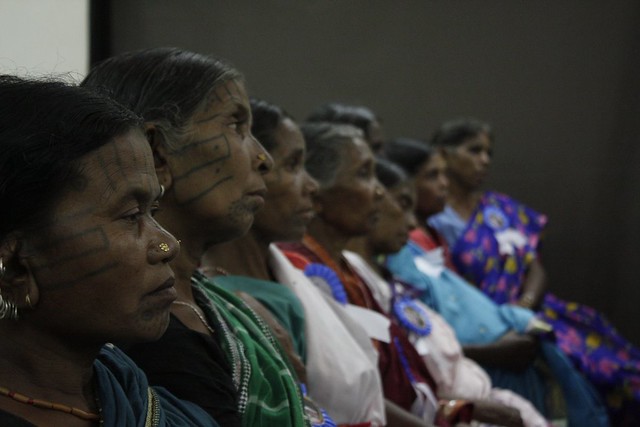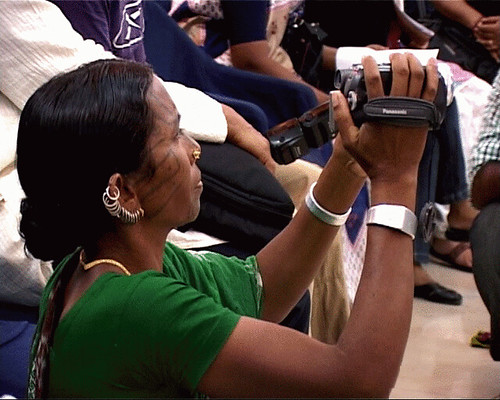By Md. Ali, TwoCircles.net
New Delhi: “The continuing programme of communal provocation that the groups and organizations of Hindutva ideology have been engaged in, should be ended forthwith through strict administrative action,” said Justice AP Shah, former CJ, Delhi High Court and head of the Jury, National People’s Tribunal (NPT) on Kandhamal.
The National People’s Tribunal (NPT) on Kandhamal is an initiative, promoted by the National Solidarity Forum, a nationwide platform of civil society actors, with the purpose of seeking justice for the victims of the communal violence in Kandhamal district of Orissa state.

National People’s Tribunal (NPT) on Kandhamal

Survivors of the Kandhamal anti-Christian violence of 2007. [Photos by Md. Ali]
Kandhamal witnessed an upsurge of violence against the minority Christian community, beginning on Christmas-eve 2007, which was considerably aggravated in August 2008, following the killing of the VHP leader Swami Lakshmananda. Official statistics, which underestimates its magnitude, testify to an unacceptable level of violence against the religious minority, who are mostly of Dalit and adivasi region.
The NPT heard testimonies of murder, torture and sexual assault. Many of the victims have suffered displacement from their places of displacement and have had their homesteads and means of livelihood destroyed. Many of them have been forced into repudiating their faith as a price for returning to their villages.
After hearing the testimonies of 43 victims-survivors of Kandhamal, the NPT has concluded that the violence there was the consequence of the subversion of the constitutional governance in which the state agencies were complicit.
The NPT has also found the evidence of the shocking level of institutional bias on the part of the state agencies, leading to their collusion into the violence and connivance in efforts to block the subsequent process of justice and accountability.
What is very striking is that the continuing failure of the state and district administration to provide redress for the violence suffered, puts India in default on constitutional guarantees and commitments made under the international covenants.

Adivasi woman recording the press conference of the NPT. [Photo by Ehtasham Khan]
Prominent recommendations of the NPT include, scrutiny of the all the officials who held position of authority during the violence and strict action against them if they are found wanting.
It has also recommended a special investigation to check the accuracy of the First Information Reports (FIRs) that have already been filed; where trial procedures have been compromised by willfully recording of crimes of lesser magnitude in the FIRs, these should be reopened with fresh charges instituted under applicable provisions of the law.
The Tribunal also asked the state government to greatly increase the scope of the compensation package offered and also to deal with the security threats they face.
The jury of the NPT was headed by Justice A.P. Shah, former Chief Justice of the Delhi High Court. Joining him as jury members were Harsh Mander (member of National Advisory Council), Mahesh Bhatt (film maker and activist), Miloon Kothari (former UN Special Rapporteur on Right to Housing), P.S.Krishnan (retired Secretary, Government of India), Rabi Das (senior journalist based in Bhubaneswar), Ruth Manorama
(women and dalit rights activist), Sukumar Muralidharan (Delhi-based free lance journalist), Syeeda Hameed (member of Planning Commission, Government of India), Vahida Nainar (expert on international law, mass crimes and gender), Vinod Raina (scientist and social activist with a specific focus on right to education), Admiral Vishnu Bhagwat (former Chief of Naval Staff) and Vrinda Grover (advocate, Delhi High Court).

